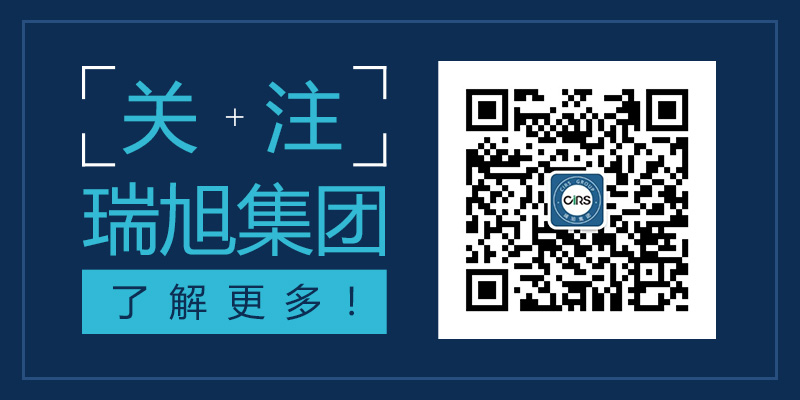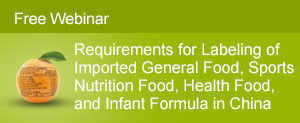On 1 July 2015, GB 13432-2013 Food labeling of Prepackaged Foods for Special Dietary uses was implemented. Meanwhile, from then on, GB 13432-2004 was invalid. The new National standard stipulates the definition of special dietary food, application scopes and labeling requirements of prepackaged foods for special dietary uses.
Compared to the previous version, GB 13432-2013 emphasized the prohibit claims for infant formula. Combined with the relevant laws and regulations, the important information of forbidden declares for infant formula label in China are highlighted as follows by CIRS food team.
Highlights:
The claim of disease prevention and treatment function are forbidden
According to the New Food Safety Law, the claim of disease prevention and treatment function are forbidden in the Chinese food label. Prepackaged foods for special dietary uses are supplied for target population to provide nutritional support, GB 13432-2013 explicitly requests that label of these foods should not involve in disease prevention and treatment function.
Content claim and function claim of the essential ingredients are forbidden in infant formula for infants aged 0-6 months.
In accordance with GB 10765-2010, the essential ingredients of infant formula include protein, fat (including linoleic acid, α-linolenic acid), carbohydrates, minerals and vitamins. As 0-6 months old infants need a comprehensive and balanced dietary, the content claim and function claim of the essential ingredients are prohibited in infant formula for infants aged 0-6 months according to the requirements of GB 13432-2013. Therefore, the claims such as “Rich in whey protein”, “Rich in vitamins” or “Contain certain mineral” are not allowed in infant formula for infants aged 0-6 months.
Claims like “Rich in XX”, “Multiplicity XX” and etc. are forbidden
Based on the Q&A of GB 13432-2013, if the content of the ingredient reach the requirement, the content claim like “Contain XX”, “XX source” and other similar claims are compliant. However, the content claim like “Rich in XX”, “XX source”or other similar claims are prohibited. For example, when the content of DHA ≥0.2% of total fatty acid in the product, content claim “Contain DHA” is allowed, but “Rich in DHA” is forbidden.
Images of baby and woman are forbidden
GB 10765-2010 stipulated that in the infant formula label, there should not exist any images of baby or woman. More to the point, “humanization”, “like Breastmilk” or other similar expressions are also forbidden in the label.
Recently, infant formula has become a growing concern in China. For the moment, Chinese government has no tolerance in infant formula issues. Additionally, CIQ has strengthened the management of Chinese food label, therefore, imported enterprises should pay more attention to Chinese label of infant formula.
Contact us
Ms. Wing Yu, Food & Health Products, CIRS China
11F Dongguan Building, 288 Qiuyi Road, Binjiang District, Hangzhou, China, 310020
Tel: +86 571 8720 6555 | Fax: +86 571 8720 6533
Email: Wing.Yu@cirs-group.com
Compared to the previous version, GB 13432-2013 emphasized the prohibit claims for infant formula. Combined with the relevant laws and regulations, the important information of forbidden declares for infant formula label in China are highlighted as follows by CIRS food team.
Highlights:
The claim of disease prevention and treatment function are forbidden
According to the New Food Safety Law, the claim of disease prevention and treatment function are forbidden in the Chinese food label. Prepackaged foods for special dietary uses are supplied for target population to provide nutritional support, GB 13432-2013 explicitly requests that label of these foods should not involve in disease prevention and treatment function.
Content claim and function claim of the essential ingredients are forbidden in infant formula for infants aged 0-6 months.
In accordance with GB 10765-2010, the essential ingredients of infant formula include protein, fat (including linoleic acid, α-linolenic acid), carbohydrates, minerals and vitamins. As 0-6 months old infants need a comprehensive and balanced dietary, the content claim and function claim of the essential ingredients are prohibited in infant formula for infants aged 0-6 months according to the requirements of GB 13432-2013. Therefore, the claims such as “Rich in whey protein”, “Rich in vitamins” or “Contain certain mineral” are not allowed in infant formula for infants aged 0-6 months.
Claims like “Rich in XX”, “Multiplicity XX” and etc. are forbidden
Based on the Q&A of GB 13432-2013, if the content of the ingredient reach the requirement, the content claim like “Contain XX”, “XX source” and other similar claims are compliant. However, the content claim like “Rich in XX”, “XX source”or other similar claims are prohibited. For example, when the content of DHA ≥0.2% of total fatty acid in the product, content claim “Contain DHA” is allowed, but “Rich in DHA” is forbidden.
Images of baby and woman are forbidden
GB 10765-2010 stipulated that in the infant formula label, there should not exist any images of baby or woman. More to the point, “humanization”, “like Breastmilk” or other similar expressions are also forbidden in the label.
Recently, infant formula has become a growing concern in China. For the moment, Chinese government has no tolerance in infant formula issues. Additionally, CIQ has strengthened the management of Chinese food label, therefore, imported enterprises should pay more attention to Chinese label of infant formula.
Contact us
Ms. Wing Yu, Food & Health Products, CIRS China
11F Dongguan Building, 288 Qiuyi Road, Binjiang District, Hangzhou, China, 310020
Tel: +86 571 8720 6555 | Fax: +86 571 8720 6533
Email: Wing.Yu@cirs-group.com






